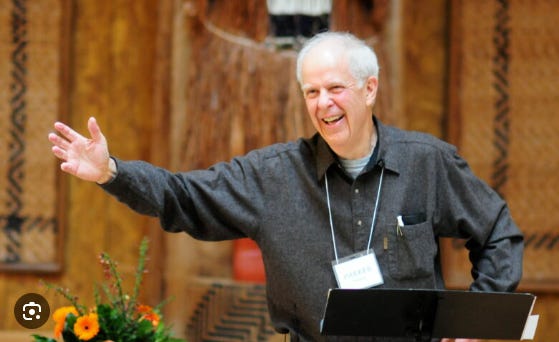The painful path from aspiration to potency
I am a teacher at heart, and there are moments in the classroom when I can hardly hold the joy. When my students and I discover uncharted territory to explore, when the pathway out of a thicket opens up before us, when our experience is illumined by the lightning-life of the mind–then teaching is the finest work I know. But at other moments, the classroom is so lifeless or painful or confused–and I am so powerless to do anything about it that my claim to be a teacher seems a transparent sham. Then the enemy is everywhere: in those students from some alien planet, in that subject I thought I knew, and in the personal pathology that keeps me earning my living this way. What a fool I was to imagine that I had mastered this occult art–harder to divine than tea leaves and impossible for mortals to do even passably well!
Palmer, P. J. (1997). The heart of a teacher: identity and integrity in teaching.
I thought of Parker Palmer yesterday as I watched our Grad Dip students teaching each other skills and concepts.
For some it was an exhilarating experience, leading a group of their peers along the pathway out of a thicket. For others, it was puzzling and unsettling that the concept or skill that seemed so transparent and transferable was somehow getting bogged down, or diverted, or was becoming frustratingly elusive.
I remember these moments – both the good ones and the ones when I felt clumsy, impotent and defeated – from my early years in the classroom. Neither has ever competely disappeared, which is good news for those who worry that teachers are doomed to become cynical and defeated, and bad news for those who look forward to the day when teaching is an uncomplicated doddle in the park.
There’s lots to be learned from the bad moments. Here I want to write about just one.
Almost all of us come into teaching with the right mindframe. We want to make a difference. We want to set up classrooms where students feel seen, accepted and encouraged. We want our subject to be alive, relevant and stimulating. We want to see our students progress, and for their future lives to be affected by our teaching. These are common and necessary aspirations; if they wither, our teaching becomes lifeless and the path to cynicism opens up before us.
Our bad moments in the classroom teach us that aspirations are not enough.
Wanting certain kinds of relationships, certain kinds of learning, is only a starting point. As well as aspirations, we need specific skills and specific knowledge.
We need to learn how to identify mandated outcomes and then adapt them into engaging lessons.
We need to understand how to best respond to students with very different motivations and needs.
We need to know how to break a lesson into segments that open up learning possibilities for different kinds of learners.
We need to modify, and sometimes to shrug off, assumptions about learning and learners that have become ingrained in us through many years of being a student (the chief of which, in my view, is that teaching is telling and that learning is to passively absorb).
We need to be able to adapt on the spot in the light of changing circumstances.
And these skills and this knowledge are not easily gained. Our teacher education courses never completely prepare us for what we will experience. I imagine (and, being a man, can only imagine) that this is not unlike prenatal birthing classes: those who attend diligently to the midwife and who conscientiously do all the exercises are better prepared, but once labour starts there’s more to learn.
Teacher education courses never completely prepare us, but sessions like yesterdays, especially for those students who had bad moments as they were teaching their peers, have the potential to be very useful. They reveal gaps in our skills and knowledge. They throw up all the right questions which, if worked on, can reduce some of the struggle of the first days in an actual classroom.
What was I trying to achieve in that session? Was this worth teaching? Was it, for my students, worth learning?
Was I paying more attention to my teaching than to my students’ learning?
How conscious, responsive and resourceful was I of a student’s lack of understanding?
Did I forget what I was trying to achieve once the lesson got under way? Did it become just a matter of getting to the end?
Do I know whether my students learned what I set out for them to learn?
How might I modify things next time so that the learning was more universally effective?
What gaps in my skills and/or knowledge did this experience reveal? How might I attend to those gaps?
These are hard questions. The answers to them are not easily or effortlessly found. We need both guts, and the help of others, to find them.





